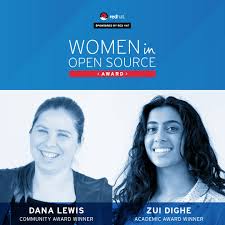type 1 diabetes
See the following -
Antibiotics Given to Babies May Change Their Gut Microbes for Years
Babies born by caesarean section, as well as those given antibiotics early in life, have a different balance of gut microbes than other babies, two new studies show. These differences could put them at higher risk for various health problems in childhood, including asthma, type 1 diabetes, and perhaps even autism. By the time children are 3 years old, their microbiomes are largely stable, said Dr. Ramnik Xavier, a lead author on one of two related studies published Wednesday in Science Translational Medicine. So what happens early in life can have long-term implications for health...
- Login to post comments
Apple-powered bionic pancreas one step closer
A paper in the prestigious New England Journal of Medicine highlights both the potential benefits of Apple’s newly unveiled HealthKit platform and how far off those benefits might still be. Read More »
- Login to post comments
Artificial Pancreas Shows Promise in Diabetes Test
A portable artificial pancreas built with a modified iPhone successfully regulated blood sugar levels in a trial with people who have Type 1 diabetes, researchers reported Sunday.
- Login to post comments
Autism Epidemic Linked To Epidemic Of Vaccine Induced Diabetes
A new peer reviewed study was published in the current issue of Open Access, Scientific Reports (Volume 2, Issue 3, 2013) linking the autism epidemic to the epidemic of vaccine induced type 1 diabetes. Read More »
- Login to post comments
Glucosio App Helps Diabetics Track Blood Sugar
 One of the top-rated apps in the Google Play Store right now when you search for glucose tracker is Glucosio. The app is designed to track blood glucose test results, and after installing it to test it out, I found it easy and simple to use, with not a lot of settings to deal with to get straight to using it. In just a few short months since its release in October 2015, Glucosio has received great ratings and reviews and over a thousand downloads. Glucosio was also recently listed on Black Duck's list of Open Source Rookies of the Year, which honors innovative, sophisticated projects in open source...
One of the top-rated apps in the Google Play Store right now when you search for glucose tracker is Glucosio. The app is designed to track blood glucose test results, and after installing it to test it out, I found it easy and simple to use, with not a lot of settings to deal with to get straight to using it. In just a few short months since its release in October 2015, Glucosio has received great ratings and reviews and over a thousand downloads. Glucosio was also recently listed on Black Duck's list of Open Source Rookies of the Year, which honors innovative, sophisticated projects in open source...
- Login to post comments
Health Tech Podcast: How One Woman Built Her Own Artificial Pancreas and Started a DIY Movement
 Dana Lewis has Type 1 diabetes, which means her pancreas doesn’t work the way it should: It doesn’t make the insulin she needs to survive. So, she built a new one. It’s not a biological organ. Lewis’ artificial pancreas system (APS) is an open-source computer system that monitors her blood sugar level and gives her body insulin as needed, building on the insulin pump and glucose monitor that she’s been using for years...
Dana Lewis has Type 1 diabetes, which means her pancreas doesn’t work the way it should: It doesn’t make the insulin she needs to survive. So, she built a new one. It’s not a biological organ. Lewis’ artificial pancreas system (APS) is an open-source computer system that monitors her blood sugar level and gives her body insulin as needed, building on the insulin pump and glucose monitor that she’s been using for years...
- Login to post comments
Healthcare Lessons from the Data Sages at Strata
Most healthcare clinicians don't often think about donating or sharing data. Yet, after hearing Stephen Friend of Sage Bionetworks talk about involving citizens and patients in the field of genetic research at StrataRx 2012, I was curious to learn more...With this in mind, I arrived at this February's Strata conference wondering what I could extrapolate from other more sophisticated data users to healthcare.
- Login to post comments
Mozilla Contributor Creates Diabetes Project for the Masses
 I recently founded my own open source project, Glucosio, to bring open source diabetes management and research software to the masses. My years of contributing to open source projects and observing various structures has really come in handy being a project leader now. I'm very excited about the future of Glucosio, but most importantly about the future open source and how that will play out in health and medicine. There is a lot of potential for software innovation in healthcare, and I think we will soon see a startup disrupt healthcare and medicine with open source solutions...
I recently founded my own open source project, Glucosio, to bring open source diabetes management and research software to the masses. My years of contributing to open source projects and observing various structures has really come in handy being a project leader now. I'm very excited about the future of Glucosio, but most importantly about the future open source and how that will play out in health and medicine. There is a lot of potential for software innovation in healthcare, and I think we will soon see a startup disrupt healthcare and medicine with open source solutions...
- Login to post comments
On the Importance of Patient Empowerment and Open Source: A Medicine X panel Weighs In
It’s your body, so you should have access to all of your medical data, right? This morning at the Medicine X session on data and devices, I learned that liberating your own medical data — or devices — will probably not be so simple. The conversation was started by Ben West, a software engineer and co-founder of the Nightscout Project, which supports the creation of open-source technology for people with Type 1 diabetes...
- Login to post comments
Red Hat Announces 2018 Women in Open Source Award Winners
 Red Hat, Inc...today announced Dana Lewis, founder of the Open Artificial Pancreas System (OpenAPS) movement, and Zui Dighe, a Duke University student, as the 2018 Women in Open Source Award winners. Both will be recognized today at Red Hat Summit, which is taking place in San Francisco this week. In its fourth year, the Women in Open Source Awards were created and sponsored by Red Hat to honor women who make important contributions to open source projects and communities, or those making innovative use of open source methodology.
Red Hat, Inc...today announced Dana Lewis, founder of the Open Artificial Pancreas System (OpenAPS) movement, and Zui Dighe, a Duke University student, as the 2018 Women in Open Source Award winners. Both will be recognized today at Red Hat Summit, which is taking place in San Francisco this week. In its fourth year, the Women in Open Source Awards were created and sponsored by Red Hat to honor women who make important contributions to open source projects and communities, or those making innovative use of open source methodology.
- Login to post comments
The New York Stem Cell Foundation Research Institute Announces Largest-ever Open Source Stem Cell Repository
The New York Stem Cell Foundation (NYSCF) Research Institute, through the launch of its repository in 2015, will provide for the first time the largest-ever number of stem cell lines available to the scientific research community. Read More »
- Login to post comments
What Does the Environment Have to Do with Diseases That Affect the Immune System?
 In 1932, New York gastroenterologist Burrill Crohn described an unusual disease in 14 adults. The patients had bouts of abdominal pain, bloody diarrhea, and lesions and scars on the bowel wall. Doctors in other parts of North America and Europe were seeing it in their patients, too. They called the rare condition Crohn’s disease. After World War II, the number of new people getting inflammatory bowel disease (Crohn’s disease and a related condition called ulcerative colitis) skyrocketed across the West in countries such as the U.S., Canada and the UK. In the last three decades, IBD has begun to crop up in newly industrialized parts of the world like Hong Kong and China’s big cities...
In 1932, New York gastroenterologist Burrill Crohn described an unusual disease in 14 adults. The patients had bouts of abdominal pain, bloody diarrhea, and lesions and scars on the bowel wall. Doctors in other parts of North America and Europe were seeing it in their patients, too. They called the rare condition Crohn’s disease. After World War II, the number of new people getting inflammatory bowel disease (Crohn’s disease and a related condition called ulcerative colitis) skyrocketed across the West in countries such as the U.S., Canada and the UK. In the last three decades, IBD has begun to crop up in newly industrialized parts of the world like Hong Kong and China’s big cities...
- Login to post comments